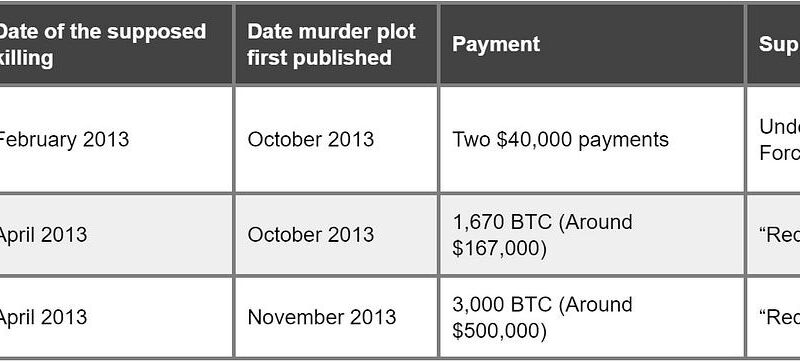
This is a guest post, written by BitMEX_Pez
Over the past week, I’ve been investigating how feasible it is to be paid in Bitcoin. In the past, I declined the opportunity, as more than half of my salary goes towards fixed costs in fiat terms such as my rent, mortgage, and school fees. However, with the failing banking system and the debasement of all fiat currencies robbing people’s savings through inflation, I feel there is a strong moral case for getting off fiat. The question remains, though, how do you pay for goods priced in SGD when you live on a Bitcoin standard?
Option 1: Long Bitcoin, Short SGD
Short SGD means paying for your daily living expenses with credit. If the price of BTC rises vs SGD in the month, then your expenses are less for that month (and the opposite is true if BTC falls). You could consider getting a credit card or two. Singapore can be generous with credit limits, and you can get some great rewards from companies like singsaver.com.sg. Pay off the credit card bill when you are paid every month. The idea here is that as Bitcoin’s value increases (BTC price since 2020 is up 400%. That’s an average monthly increase of 11%), your credit card bill becomes cheaper. While the world is experiencing inflation, the price of all goods is devaluing against Bitcoin.
To pay rent & mortgage payments and other bank transfers, you can use services like https://www.ipaymy.com/. You send them Bitcoin, and they do a bank transfer on your behalf. They charge a 0.8% transaction fee at the time of writing. Another benefit of ipaymy.com is that it is in multiple countries, so if you have bills or invoices to pay cross borders, you don’t pay extra fees or remittance. (I have a mortgage in Australia, and the transaction fee is competitive with wise.com).
Option 2: Long Bitcoin, Neutral SGD
Hold your salary in Bitcoin as you receive it, don’t convert any, and just spend as you would normally and use services that do the auto-convert from BTC to SGD for you. You’ll eat fees, Around 0.8% for a bank transfer, then the spreads these services convert you on could be as high as 1%. You’re taking a bet that the value of Bitcoin will increase more than the fees you pay extra. Don’t forget the hidden fee of inflation, an inflation rate of 5% means a fee of 0.4% a month on holding fiat!
There are services available that allow you to use a debit card paid for via bitcoin in a wallet. There are not many options in Singapore for bitcoin-backed debit cards, though I expect this to change in the near future. You can find a comparison list here: https://www.loanadvisor.sg/article/investment/crypto-card-singapore/
To use these debit cards you need to hold your bitcoin with the custodian which brings custodian risk, and some require monthly fees or for you to stake a shitcoin that has price risk. For certain coins, BitMEX offers a perp, so you are able to hedge your exposure to the service provider’s coin. For example, certain providers require staking $5,000USD of their coin, you could do this, then open a $5,000 short position on the BitMEX perp to remove price risk of that staked amount.
Option 3: Neutral Bitcoin, Long SGD
Hold Bitcoin, budget your fiat expenses. Hedge at the start of the month. This can be a sliding scale of how much exposure to Bitcoin you want, and there are two ways to hedge your exposure to Bitcoin. One is with BTC margined derivatives contracts that BitMEX.com offers, and the other is just spot selling the amount of BTC you need to pay fiat expenses.
Calculate the fixed costs you have month to month. I.e. School fees, rent, mortgage. And look to hedge that much BTC each month at the start of the month. If you have SGD$5k in monthly expenses you know you’ll need to cover, you can do two things.
Spot selling BTC
You can sell 0.125 BTC on a spot exchange for USDT, convert the USDT to SGD, and withdraw it to your bank account. However, keep in mind that there will be fees involved, which can be around 0.7% depending on the exchange and the volume you’re selling. Coinbase.com and independentreserve.com are two exchanges that allow you to off-ramp to SGD, and they have similar fee structures. However, Independent Reserve has a BTC-SGD order book that allows you to control the price at which you sell BTC.
Short XBTUSD on BitMEX.com
Another option is to take a short position of 0.125 BTC on BitMEX.com on the XBTUSD contract. This way, you won’t be exposed to the price of BTC, and there’s a chance to earn yield via the funding rate. The fees are trivial, at around 0.02% maker, and you can use a credit card for your expenses. However, you’ll have to withdraw eventually to pay off your debts, and for that, you’ll likely want to sell spot and withdraw via Coinbase or Independent Reserve. This could work best for costs that you know are coming but are not due this month. For example, if you’re paying taxes, you could take a short position for 15% of your salary every month so that you can cover the costs of your tax despite the fluctuations in BTC price.
Living on a Bitcoin standard requires a mental shift. Prices tend to trend to zero on a Bitcoin standard, while they trend to infinity on a fiat standard. Prices trend downwards over time, which can be difficult to grasp. For instance, your morning coffee might go from 15,000 sats to 10,000 sats instead of going from $5 to $7 over the next 12 months. On the flip side, your pay could fall from 2.6 BTC to 2 BTC as the cost of your labor falls against Bitcoin. The first time your pay packet comes in 5% less, it won’t feel great, but you need to remember that the price of all goods has also declined while your savings have appreciated by 5%. This creates a new incentive to save more of your salary, maybe you won’t go for that cafe cappuccino because you know that 15,000 sats will buy more in the future. And on the flip side, while BTC-backed loans are not a thing yet, taking a loan or using credit wouldn’t be a good idea as the debt becomes more expensive over time.
Living on a Bitcoin standard is doable in Singapore now, and it will get easier over time. The biggest hurdle is transaction fees, but these will trend to zero as more competition enters the market. If your monthly expenses are less than your salary and you want to escape the fiat system, a Bitcoin standard might work for you.
Related
The post appeared first on Blog BitMex






